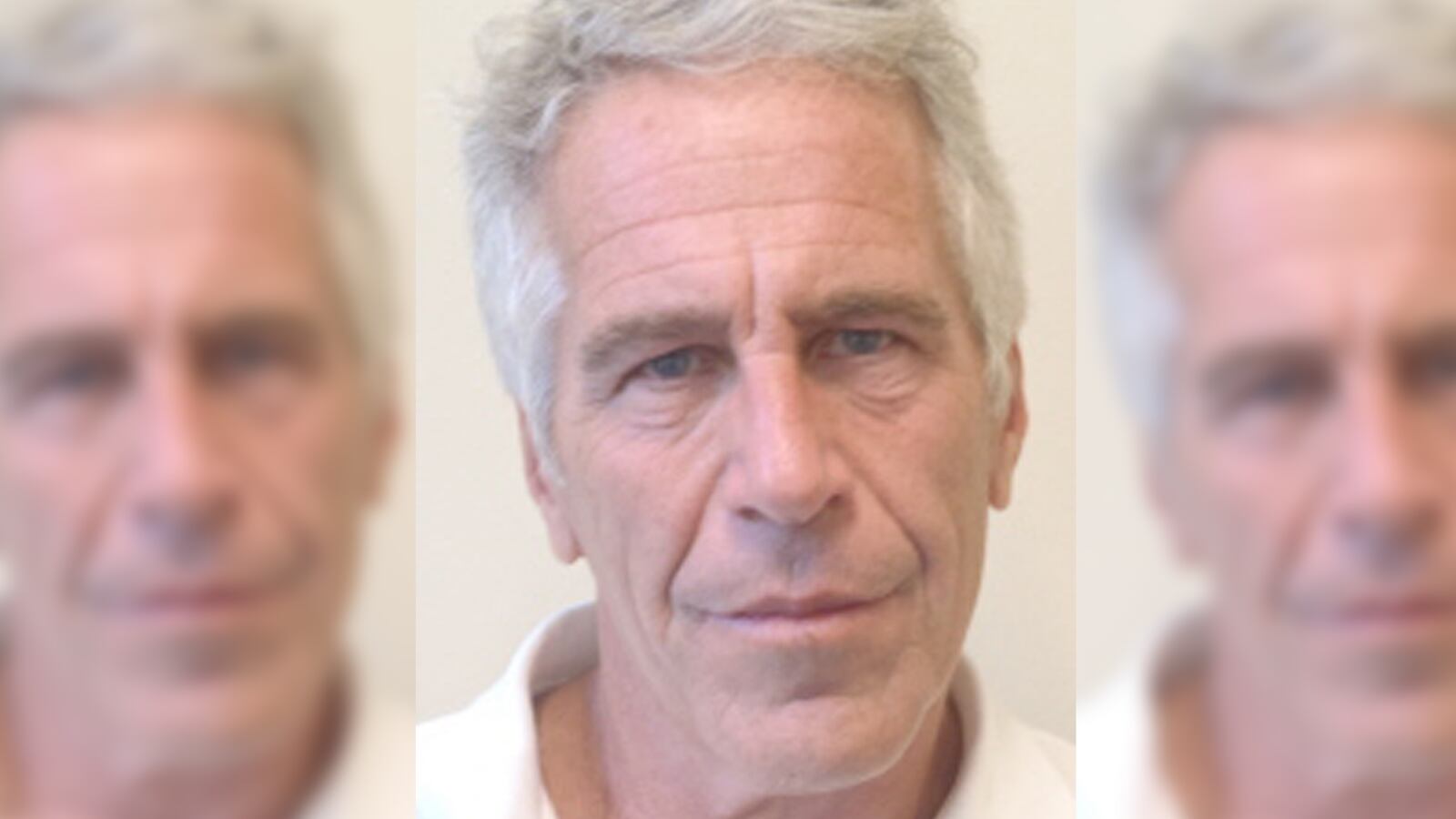Editor's note: On August 10, 2019, Jeffrey Epstein died in an apparent jailhouse suicide. For more information, see The Daily Beast's reporting here.
The judge who denied Jeffrey Epstein bail on Thursday ruled that he is a danger to the community, in part because his “excessive attraction” to young girls “appears likely to be uncontrollable.”
U.S. District Judge Richard Berman said the evidence offered by federal prosecutors that it was too risky to release the globe-trotting financier appeared “strong.”
“The evidence includes testimony of victims, some of whom were minor girls when they were allegedly sexually abused by Mr. Epstein; other witnesses, including potential coconspirators; physical evidence, including passports reflecting extensive foreign travel; sexually suggestive photographs of nude underage girls; plea discussions; and police reports describing witness tampering and intimidation,” Berman wrote in a 33-page opinion.
Epstein, 66, had been hoping for house arrest but got the news that he will be staying in jail until his sex-trafficking trial at a brief morning hearing in federal court in Manhattan.
“I doubt that any bail package can overcome danger to the community,” Berman said at the hearing.
Hours later, he filed his written ruling in which he said it seemed likely that Epstein, a registered sex offender, would strike again if he were let out of jail.
“Mr. Epstein’s alleged excessive attraction to sexual conduct with or in the presence of minor girls—which is said to include his soliciting and receiving massages from young girls and young women perhaps as many as four times a day—appears likely to be uncontrollable,” Berman wrote.
“It seems fair to say that Mr. Epstein’s future behavior will be consistent with past behavior, including the trove of ‘lewd photographs of young-looking women or girls,’ which were recently uncovered during the July 6-7, 2019, search of Mr. Epstein’s East 71st Street mansion,” he added.
Berman also said Epstein’s $559 million fortune made him a flight risk.
“The Defendant’s vast wealth and influential contacts have provided him with the means to pay individuals to assist him in unlawful endeavors, including potentially fleeing the jurisdiction,” the judge wrote.
The decision is a victory for prosecutors who argued that Epstein was too rich and the charges he faces too serious to let him return to the Manhattan mansion where he allegedly molested dozens of underage girls.
The proof they offered included a fake Austrian passport and dozens of small diamonds found in a safe, accusations of witness-tampering, and suspiciously timed payments to alleged accomplices.
When Epstein offered to put up a $100 million bond, hire armed guards and a “live-in” trustee, the feds scoffed that he was trying to build his own private prison—a “gilded cage” from which he could easily take flight.
Epstein, who is being held at the federal Metropolitan Correctional Center, displayed no emotion as Berman issued his ruling from the bench.
With the bail issue settled, Epstein’s lawyers will likely focus their attention on trying to get the New York indictment thrown out by arguing it violates a sweetheart plea deal he cut with the feds in Florida in 2007.
He served just 13 months on two state prostitution charges back then, much of it on work release that he allegedly used for sexual hookups. After his release, he tried to fade into obscurity—a plan foiled by a Miami Herald investigation and ongoing litigation by his accusers.
The Public Corruption unit of the U.S. Attorney’s Office in Manhattan launched its own probe of the politically connected multimillionaire. And the FBI arrested Epstein on July 6 at New Jersey’s Teterboro Airport as he returned from France.
Two days later he pleaded not guilty to charges of sex-trafficking and conspiracy for allegedly paying girls for massages that morphed into sex acts, and then recruiting some of them to find other girls to abuse.
Since then, attorneys representing his accusers said, more than a dozen other women have come forward with accounts of abuse. Authorities in New Mexico, where Epstein has a sprawling ranch, have spoken to at least two new accusers who say he preyed on them when they were minors in the mid-2000s.
“At this point our plan is to share the results with the feds,” said Matt Baca, a spokesman for New Mexico Attorney General Hector Baldera. “We have been in contact with them.”
The New York indictment details the allegations of just three victims between 2002 and 2005, but prosecutors have left the door open to adding charges or defendants in a superseding indictment—a development that legal experts see as inevitable.
Courtney Wild, an Epstein accuser who has sued the federal government over the secret plea deal that the courts agree violated victims’ rights, appealed earlier this week for anyone who has an Epstein story to tell it.
“To every victim out there, I understand what you are going through. You may try to convince yourself it was a long time ago and try to move on,” Wild said.
“But you are not alone. If you are a victim of Jeffrey Epstein, you know what I know, he will continue to sexually abuse women until he is stopped.”
With additional reporting by Pervaiz Shallwani









